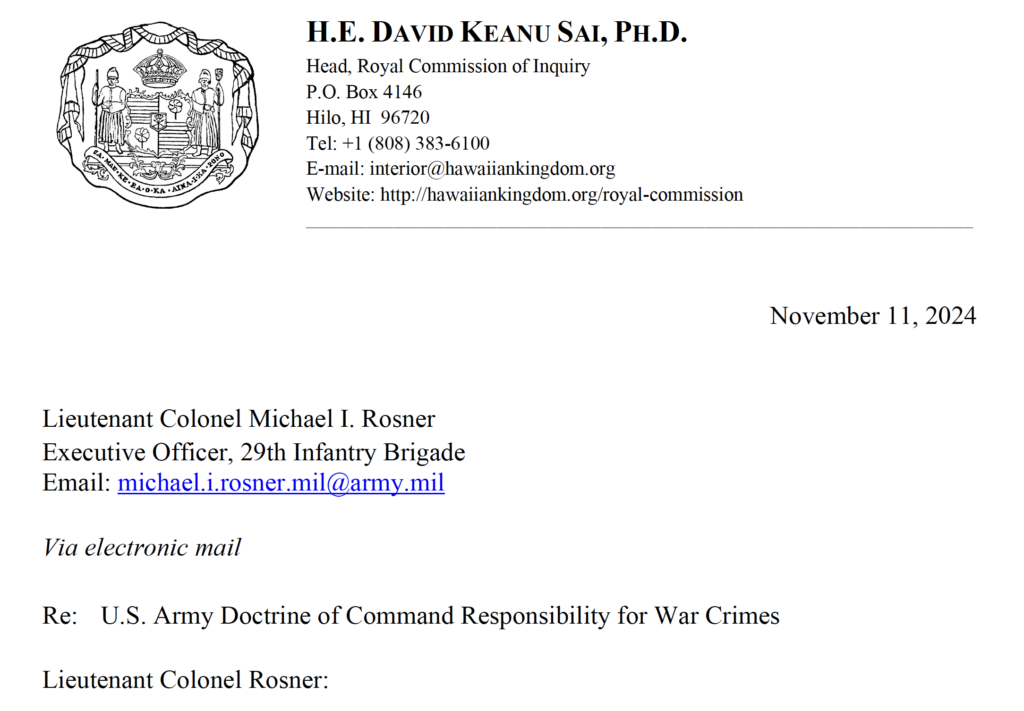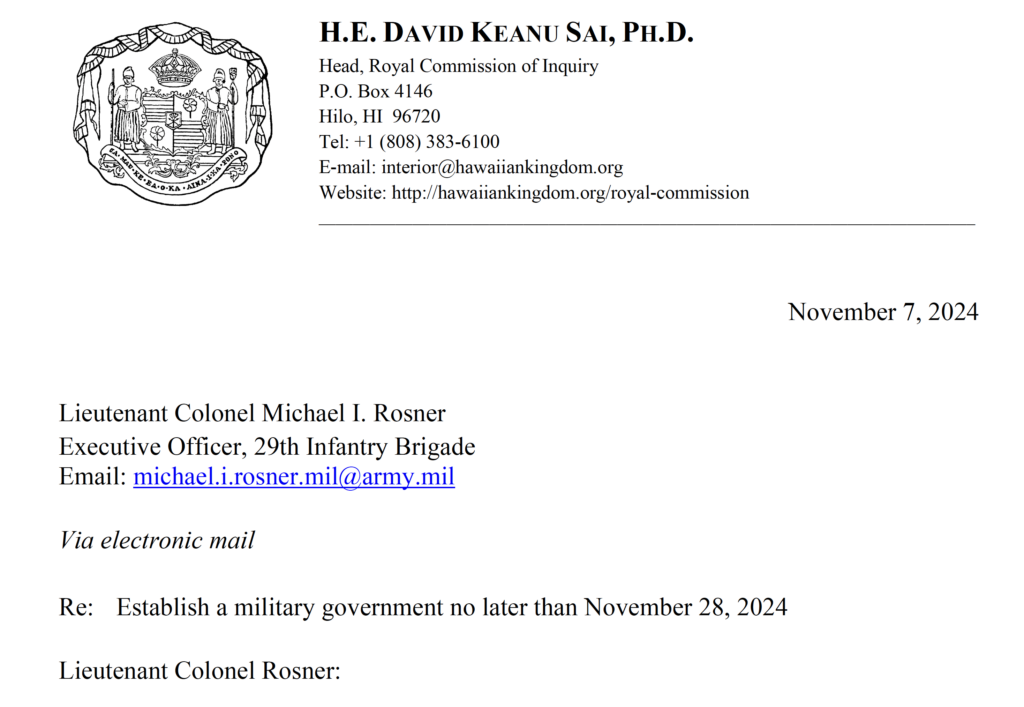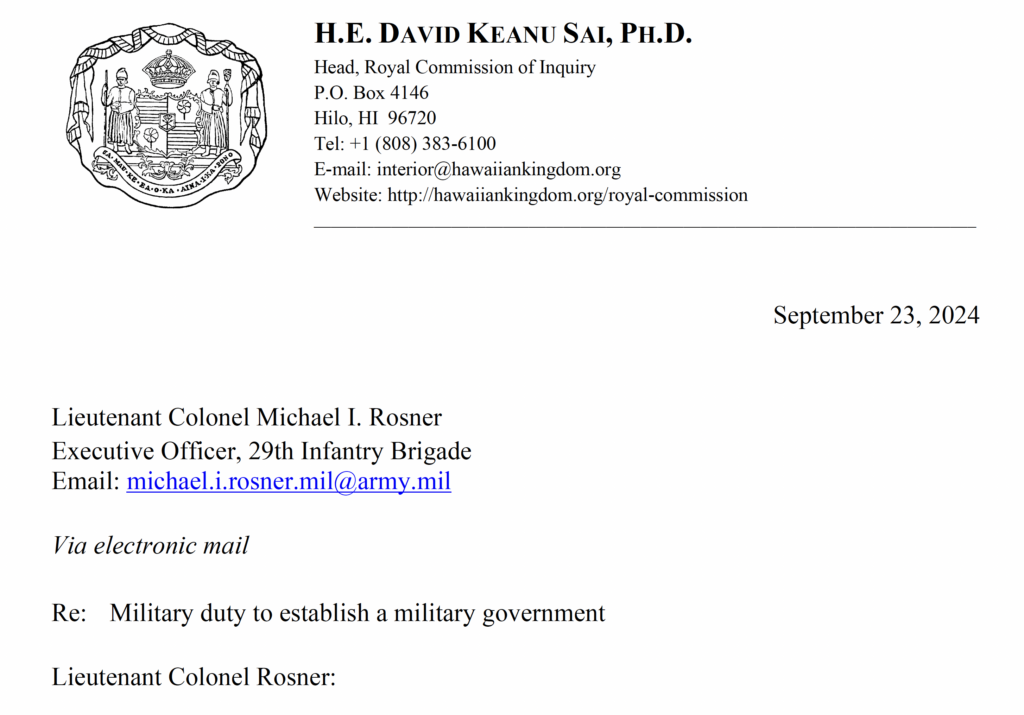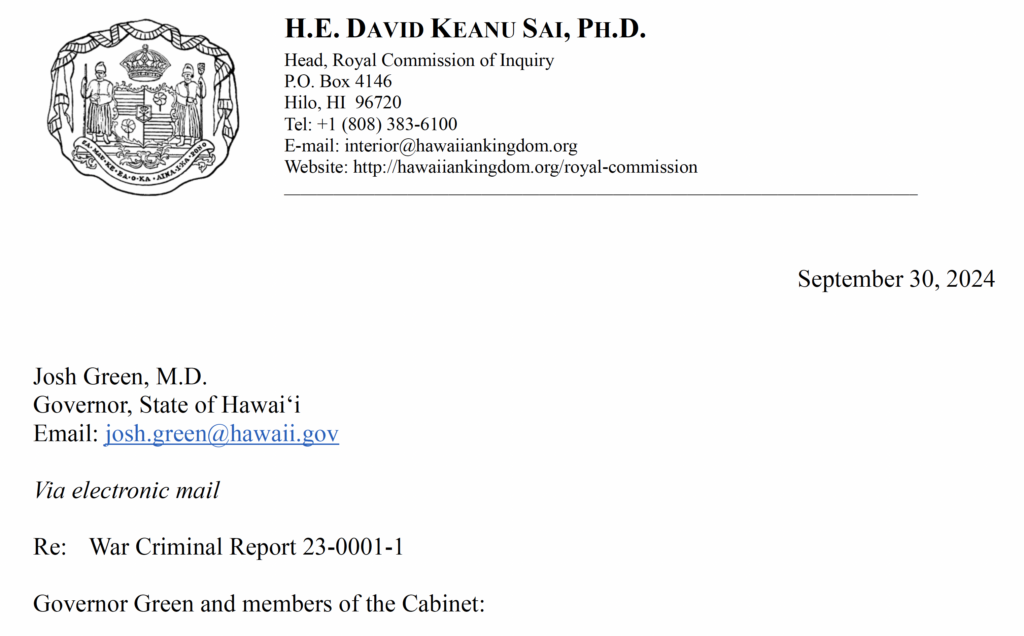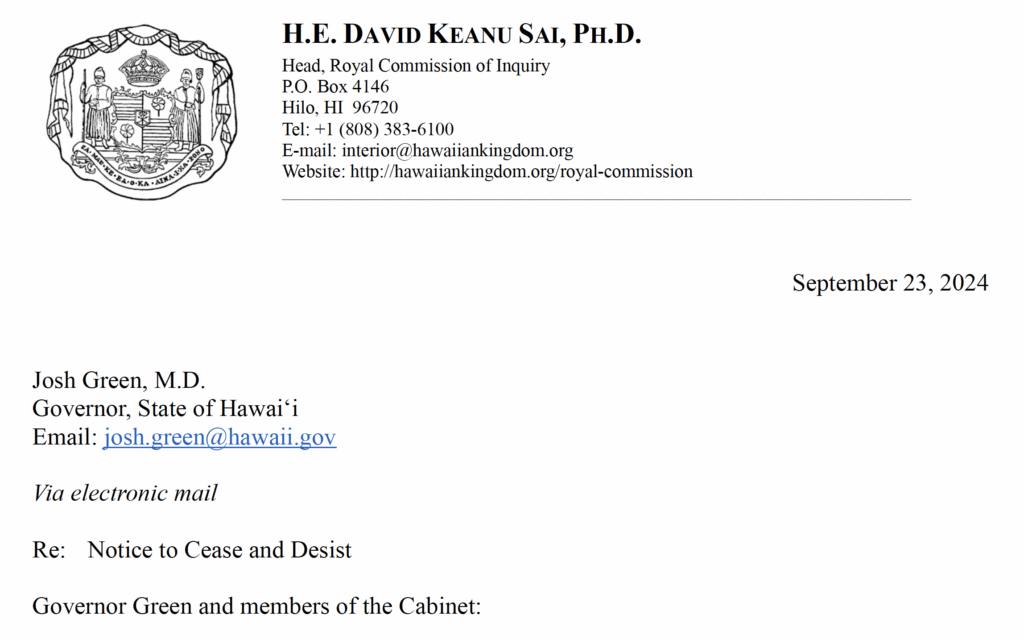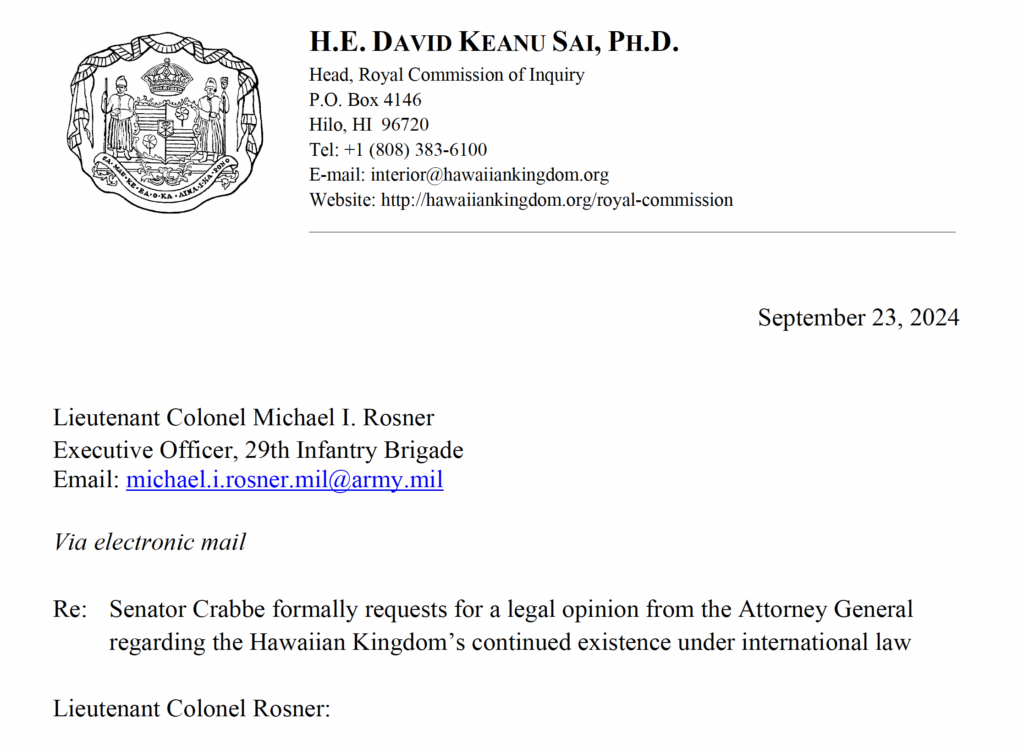Normally when a crime is committed at the national level, a person not only has to commit the criminal act but also must have the criminal intent to commit the crime. In other words, for a person to be held criminally liable, he/she would also have known that the act was unlawful. Criminal culpability, under U.S. federal law, could also apply to a person who did not commit the crime themselves, but knew that a federal crime had been committed and did not report it. This is misprision of a felony that criminalizes the active concealment of a known felony without reporting it to the proper authorities. A felony is where the punishment of a crime is a year or more in prison. Less than a year in prison is a misdemeanor.
At the international level, a war crime can be committed by an individual as well as someone in authority who knew of the commission of the war crime and did nothing to prevent it or stop it. So, under international criminal law, there is the war crime committed by a perpetrator and there is the war crime by omission, which is the failure of a person in authority to act. The failure to act does not require criminal intent.
General Tomoyuki Yamashita was not only the most senior officer of the Japanese military in the Philippines, but he was also the military governor of the occupied territory of the Philippines. Under the law of occupation, the civilian population of the occupied State owe temporary obedience to the occupier, who in turn will protect their rights under the laws of the occupied State. The Philippines, at the time, were a part of the territory of the United States. So, when Japanese soldiers were killing American prisoners of war, they were also raping and killing civilians. It was argued that General Yamashita, as a person of authority, could have put a stop to these war crimes. He was found guilty and sentenced to death.
In 1945, General Yamashita was tried and convicted for the commission of war crimes, but he was not the perpetrator of the war crimes. In fact, he was not charged with war crimes. He was charged under the theory that he knew or should have known that war crimes were being committed against American prisoners of war and Filipino citizens and he did not put a stop to it or punish the perpetrators. This theory became a legal doctrine called command responsibility for war crimes.
Under this legal doctrine of command responsibility, there are the following three elements establishing criminal liability for war crimes by omission:
(1) there must be a superior-subordinate relationship;
(2) the superior must have known or had reason to know that the subordinate was about to commit a crime or had committed a crime; and
(3) the superior failed to take the necessary and reasonable measures to prevent the crime or to punish the perpetrator.
According to the U.S. Department of Defense draft instructions for guidance to military commissions states: “A person is criminally liable for a completed substantive offense if that person commits the offense, aids or abets the commission of the offense, solicits commission of the offense, or is otherwise responsible due to command responsibility,” and provides the following elements:
(1) The accused had command and control, or effective authority and control, over one or more subordinates;
(2) One or more of the accused’s subordinates committed, attempted to commit, conspired to commit, solicited to commit, or aided or abetted the commission of one or more substantive offenses triable by military commission;
(3) The accused either knew or should have known that the subordinate or subordinates were committing, attempting to commit, conspiring to commit, soliciting, or aiding and abetting such offense or offenses; and
(4) The accused failed to take all necessary and reasonable measures within his or her power to prevent or repress the commission of the offense or offenses.
These four elements are the same under customary international law. According to an authoritative study of customary international law by the International Committee of the Red Cross:
Commanders and other superiors are criminally responsible for war crimes committed by their subordinates if they knew, or had reason to know, that the subordinates were about to commit or were committing such crimes and did not take all necessary and reasonable measures in their power to prevent their commission, or if such crimes had been committed, to punish the persons responsible.
The U.S. Army updated Army Regulation 600-20, Army Command Policy, which states under the heading of Command responsibility under the law of war:
4-24. Commanders are legally responsible for war crimes they personally commit, order committed, or know or should have known about and take no action to prevent, stop, or punish.
Consequently, if commanders ‘know or should have known’ that war crimes are being committed and ‘take no action to prevent, stop, or punish,’ they could be held criminally liable for the war crime by omission.
It is uncontested by the United States, the State of Hawai‘i, and the Counties that war crimes, under customary international law, are occurring throughout the Hawaiian Islands. It is also uncontested that the Hawaiian Kingdom continues to exist as an occupied State and that the Council of Regency is its acting government. Legal opinions by Professor William Schabas, Professor Matthew Craven, and Professor Federico Lenzerini who are international law scholars, explain this under the rules of customary international law.
Article 38 of the Statute of the International Court of Justice identifies five sources of international law: (a) treaties between States; (b) customary international law derived from the practice of States; (c) general principles of law recognized by civilized nations; and, as subsidiary means for the determination of rules of international law; (d) judicial decisions; and (e) the writings of “the most highly qualified publicists.” These writings by these scholars are from “the most highly qualified publicists,” and are, therefore, a source of customary international law.
According to Professor Malcolm Shaw, “Because of the lack of supreme authorities and institutions in the international legal order, the responsibility is all the greater upon publicists of the various nations to inject an element of coherence and order into the subject as well as to question the direction and purposes of the rules.” Thus, Professor Shaw states, “academic writings are regarded as law-determining agencies, dealing with the verification of alleged rules.” This is consistent with how the U.S. Supreme Court views the writing of international scholars. In the Paquette Habana case, Supreme Court explained:
International law is part of our law, and must be ascertained and administered by the courts of justice of appropriate jurisdiction, as often as questions of right depending upon it are duly presented for their determination. For this purpose, where there is no treaty, and no controlling executive or legislative act or judicial decision, resort must be had to the customs and usages of civilized nations; and, as evidence of these, to the works of jurists and commentators, who by years of labor, research and experience, have made themselves peculiarly well acquainted with the subjects of which they treat. Such works are resorted to by judicial tribunals, not for the speculations of their authors concerning what the law ought to be, but for trustworthy evidence of what the law really is (emphasis added).
As a source of international law, the legal opinions establish a shift in the burden of proof. The presumption of State continuity shifts the burden of proof as to what is to be proven and by whom to rebut this presumption. Like the presumption of innocence, the accused does not prove their innocence, but rather the prosecution must prove, beyond a reasonable doubt, that person’s guilt. Likewise, the Hawaiian Kingdom need not prove its continued existence, but rather, the United States must prove, beyond a reasonable doubt, that it extinguished the Hawaiian Kingdom as a State under international law.
Without such proof the State of Hawai‘i is illegitimate. It would stand to reason that the United States would have rebutted these legal opinions but it cannot because there are no rules of customary international law that can substantiate the lawfulness of the American presence in the Hawaiian Islands, to include the State of Hawai‘i. The only rules of international law that would temporarily allow the presence of the United States is through its military under the law of occupation and the duty to establish a military government. This is explained by the Permanent Court of International Justice in the Lotus case, which was a dispute between France and Turkey. The Court stated::
Now the first and foremost restriction imposed by international law upon a State is that—failing the existence of a permissive rule to the contrary—it may not exercise its power in any form in the territory of another State. In this sense jurisdiction is certainly territorial; it cannot be exercised by a State outside its territory except by virtue of a permissive rule derived from international custom or from a convention [treaty].
Since returning from the international arbitration proceedings in Larsen v. Hawaiian Kingdom in the Netherlands in December of 2000, where the Permanent Court of Arbitration recognized the continued existence of the Hawaiian Kingdom as a State under international law, the Council of Regency focused its attention on exposing the continued existence of the Hawaiian Kingdom as an occupied State since January 17, 1893. The Regency also framed the exposure through international humanitarian law, the law of occupation, and the consequential war crimes that have and continue to be committed.
Under the law of occupation, the occupant of the occupying State, being the State of Hawai‘i, is obligated to protect the private rights of the Hawaiian citizenry. The occupant protects these rights by establishing a military government in order to administer the laws of the Hawaiian Kingdom. After unlawfully overthrowing the government of the Hawaiian Kingdom on January 17, 1893, the U.S. military did not follow this international rule.
Instead, the United States allowed their puppet, calling itself the provisional government, to unlawfully maintain control of the machinery of the Hawaiian Kingdom government. President Grover Cleveland told the Congress that the “provisional government owes its existence to an armed invasion by the United States.”
These insurgents changed their name, in 1894, to the so-called Republic of Hawai‘i. In 1898, at the height of the Spanish-American War, the United States merely enacted a federal law purporting to have annexed the Hawaiian Islands. This was all in violation of international law and the law of occupation. According to U.S. Army Field Manual 6-27 under the heading Limitations of Occupation:
6-24. Military occupation of enemy territory involves a complex, trilateral set of legal relations between the Occupying Power, the temporarily ousted sovereign authority, and the inhabitants of the occupied territory. Military occupation does not transfer sovereignty to the Occupying Power, but simply gives the Occupying Power the right to govern the enemy territory temporarily.
6-25. The fact of a military occupation does not authorize the Occupying Power to take certain actions. For example, the Occupying Power is not authorized by the fact of a military occupation to annex occupied territory or create a new State. Nor may the Occupying Power compel the inhabitants of occupied territory to become its nationals or otherwise swear allegiance to it.
Despite the United States own Army Field Manual that states, ‘the Occupying Power is not authorized by the fact of military occupation to annex occupied territory or create a new State,’ it is, in fact, what the United States did when it unilaterally annexed the Hawaiian Islands in 1898 and created the State of Hawai‘i and its Counties in 1959. While these acts are clearly violations of international humanitarian law and the law of occupation, it did not affect, nor did it alter the sovereignty of the Hawaiian Kingdom. These acts also did not change the legal status of the Hawaiian Kingdom as an occupied State, which the Permanent Court of Arbitration recognized on November 8, 1999, when international arbitration proceedings were initiated.
Instead, these unlawful acts set in motion for the commission of the war crime of usurpation of sovereignty during military occupation, which is the unlawful imposition of American laws and administrative measures of the occupying State over the territory of the occupied State. This war crime triggered secondary war crimes that include the war crime of compulsory enlistment; the war crime of denationalization; the war crime of confiscation or destruction of property; the war crime of deprivation of fair and regular trial; the war crime of deporting civilians of the occupied territory; and the war crime of transferring populations into an occupied territory.
Lieutenant Colonel Michael Rosner became the most senior officer in the Hawai‘i Army National Guard because of war crimes by omission committed by Major General Kenneth Hara-War Criminal Report no. 24-0001, Brigadier General Stephen Logan-War Criminal Report no. 24-0002, Colonel Wesley Kawakami-War Criminal Report no. 24-0003, Lieutenant Colonel Fredrick Werner-War Criminal Report no. 24-0004, Lieutenant Colonel Bingham Tuisamatatele, Jr.-War Criminal Report no. 24-0005, Lieutenant Colonel Joshua Jacobs-War Criminal Report no. 24-0006, and Lieutenant Colonel Dale Balsis-War Criminal Report no. 24-0007.
After they were made aware of war crimes being committed throughout the Hawaiian Islands, each of these Army commanders failed to put a stop to these war crimes. Although, each of these commanders did not commit the war of usurpation of sovereignty during military occupation themselves, they have criminal liability under the legal doctrine of command responsibility for war crimes because they did not establish a military government that would have brought these war crimes to an end. Under the law of occupation, as stated in U.S. Army Field Manual 27-5:
(1) Civil affairs/military government (CA/MG). CA/MG encompasses all powers exercised and responsibilities assumed by the military commander in an occupied or liberated area with respect to the lands, properties, and inhabitants thereof, whether such administration be in enemy, allied, or domestic territory. The type of occupation, whether CA or MG, is determined by the highest policy making authority. Normally, the type of occupation is dependent upon the degree of control exercised by the responsible military commander.
(2) Military government. The term “military government” as used in this manual is limited to and defined as the supreme authority exercised by an armed occupying force over the lands, properties, and inhabitants of an enemy, allied, or domestic territory. Military government is exercised when an armed force has occupied such territory, whether by force or agreement, and has substituted its authority for that of the sovereign or previous government. The right of control passes to the occupying force limited only by the rules of international law and established customs of war.
(3) Civil affairs. The term “civil affairs” as used in this manual is defined as the assumption by the responsible commander of an armed occupying force of a degree of authority less than the supreme authority assumed under military government, over enemy, allied, or domestic territory. The indigenous governments would be recognized by treaty, agreement, or otherwise as having certain authority independent of the military commander.
(4) Occupied territory. The term “occupied territory” as used in this manual means any area in which CA/MGis exercised by an armed occupying force. It does not include territory in which an armed force is located but has not assumed authority.
3. COMMAND RESPONSIBILITY. The theater commander bears full responsibility for CA/MG; therefore, he is usually designated as military governor or civil affairs administrator, but is authorized to delegate his authority and title, in whole or in part, to a subordinate commander. In occupied territory the commander, by virtue of his position, has supreme legislative, executive, and judicial authority, limited only by the laws and customs of war and by directives from higher authority.
4. REASON FOR ESTABLISHMENT. a. Reasons for the establishment of CA/MG are either military necessity as a right, or as an obligation under international law. b. Since the military occupation of enemy territory suspends the operation of the government of the occupied territory, the obligation arises under international law for the occupying force to exercise the functions of civil government looking toward restoration and maintenance of public order. These functions are exercised by CA/MG. An armed force in territory other than that of an enemy similarly has the duty of establishing CA/MG when the government of such territory is absent or unable to function properly.
LTC Rosner has found himself in a position not of his own making, but rather because of war crimes by omission committed by previous commanders under the Army doctrine of command responsibility for war crimes. As an Executive Officer for the 29th Infantry Brigade, he does not have the legal background to understand international law except what is in Army doctrine and regulations. He does, however, have a judge advocate (JAG) named Lieutenant Colonel Lloyd Phelps whose duty is to give legal advice to commanders, which LTC Rosner finds himself in.
As Major Michael Winn, a JAG, stated in his article 2022 article Command Responsibility for Subordinates’ War Crimes: A Twenty-First Century Primer that was published in vol. 2 of Army Lawyer, “In this era of increased focus on command responsibility for war crimes, legal advisors have an important role to play in helping their commanders prevent, stop, and punish such offenses. Accordingly, legal advisors keep their commanders on the high road of command responsibility.”
LTC Rosner has until November 28, 2024, to transform the State of Hawai‘i into a military government in accordance with U.S. Department of Defense Directive 5100.1, U.S. Army Field Manual 6-27—chapter 6, and the law of occupation. For LTC Rosner not to so, after being made aware of the commission of war crimes, he, like the commanders before him will be the subject of a war criminal report by the Royal Commission of Inquiry for the war crime by omission.
For LTC Rosner to not have criminal liability under the command responsibility for war crimes, LTC Phelps will need to show a legal basis, under customary international law, that the United States extinguished the Hawaiian Kingdom as a State. To do so, LTC Phelps will need to provide LTC Rosner an international treaty where the Hawaiian Kingdom ceded its sovereignty and territory to the United States. This he cannot do because there is no such treaty.

